Reviews include Superman, Apocalypse in the Tropics, and To a Land Unknown.
TIFF 2022 Festival Report: Real Fiction, Odd Couples, and The Bulgari Clap
September 21, 2022
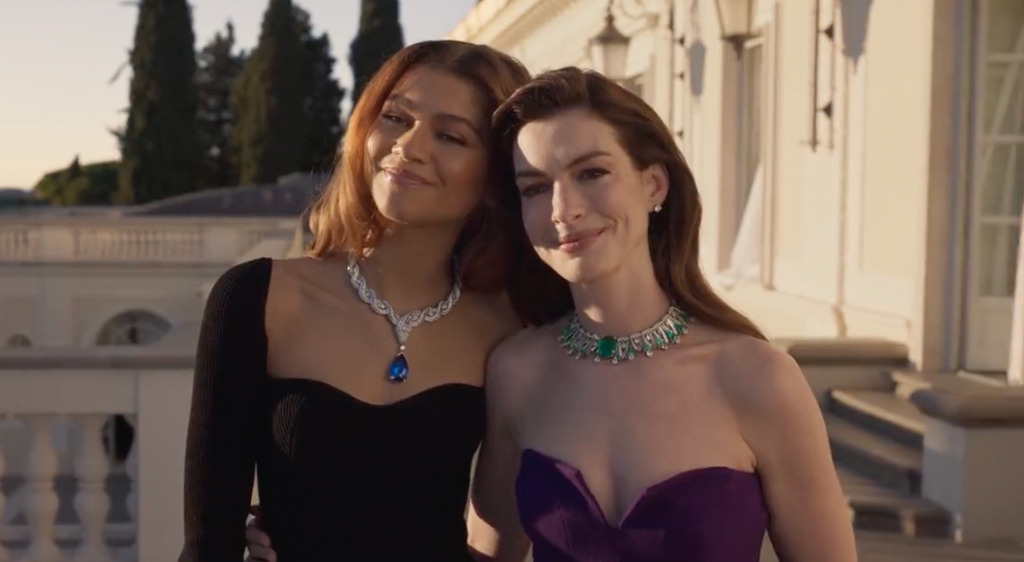
By Rose Ho
TIFF is back, baby! It feels like many of the storytellers and filmmakers presenting movies at the festival brought their A-games after the muted virtual/hybrid years of the pandemic. Audiences were mostly back in full force, if the rush lines (and chaos at the online box office that prompted many disgruntled tweets) were any indication.
This year, TIFF venues were mainly concentrated on King Street, making it relatively easy to get from one screening to another, although some screenings were held at the IMAX Cinesphere theatre way over at Ontario Place, which also had zero parking lot availability for several days — a huge bummer. And Festival Village was also back with King Street closed off for pedestrians.
Celeb-spotting got intense as fans of Taylor Swift and Harry Styles lined the streets to catch a glimpse of the mega-stars during their brief visits to Toronto. The Brad and Leo of South Korea, actor–directors Lee Jung-jae and Jung Woo-sung were also both in town to premiere their feature directorial debuts with Hunt and A Man of Reason, respectively. (During Lee’s and Jung’s “In Conversation With” discussion, a woman in the audience revealed that she flew all the way from South Korea to watch their new movies.)
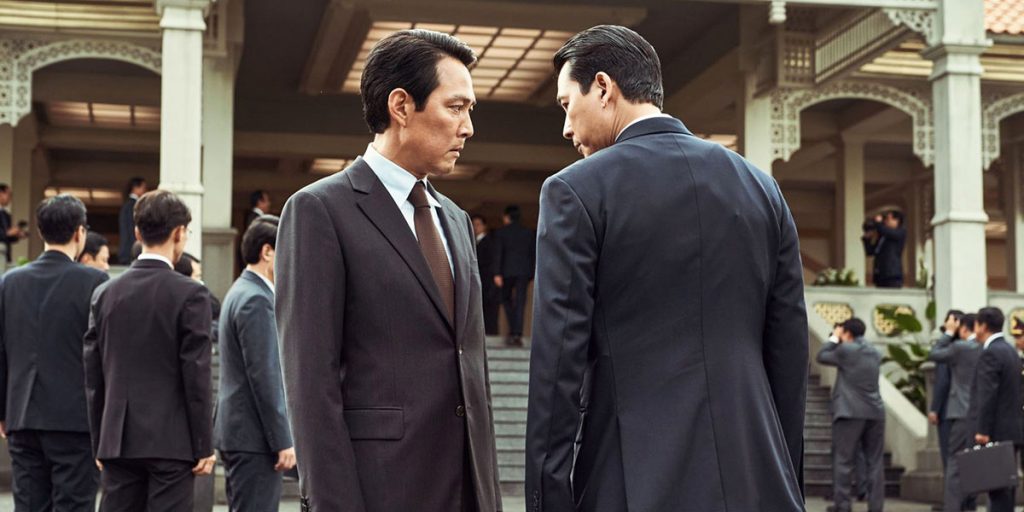
I attended for the first time as a member of the press last year, but do so virtually via digital screenings. This year, I was determined to watch as many movies in-person as I could, from one weekend to the next, in order to get the full experience. Scheduling screenings was pretty stressful, as was nabbing seats, but it is definitely part of the experience — as is changing one’s mind partway through the week after chatting with someone in line or eavesdropping on other people in the theatre talking about their recommendations.
In the end, I watched sixteen films, many of which I enjoyed and look forward to revisiting when they are released later this year or early next. Of the movies I saw, most of them were period dramas, ranging from 1700s France and 1800s Austria to 1950s England and 1990s Canada. Although disparate in subject matter, time, and place, there were a few trends in TIFF this year.
Loosely Based On a True Story
A number of films liberally fictionalized real events for entertainment purposes. For example, TIFF’s People’s Choice Award winner, The Fabelmans, is Stephen Spielberg’s semi-autobiographical origin story as a budding filmmaker. The film dramatizes his life growing up in mid-century America with a brilliant engineer father (played by Paul Dano) and musically talented mother (played by Michelle Williams). Spielberg paints his childhood in warm, nostalgic tones but doesn’t shy away from family drama and coming-of-age awkwardness. He writes history for himself and for his audience in order to do what is best for the film, as his in-movie analogous Sammy Fabelman (Gabriel LaBelle) justifies at one point. And it’s completely earned by the master of sentimentality himself; the film is a real audience-pleaser.

Another autobiographical work, Weird: The Al Yankovic Story also takes major artistic licence in presenting the journey of the polka-playing parody-master from weird kid to “maybe-not-the-best-but-arguably-the-most-famous-accordion-player-in-a-extremely-specific-genre-of-music.” The tongue-in-cheek movie is a silly and enjoyable flight of fancy as well as a parody of musical biopics. Daniel Radcliffe’s performance as Weird Al is extremely committed, gamely pulling off zany musical performances and unexpected action scenes throughout. It is also chockful of cameos, from Jack Black and Patton Oswalt to Al Yankovic himself. Weird received the People’s Choice Award for Midnight Madness.
A couple other biographical films also took dramatic license with their subject matter. Chevalier fills in the blanks for a historical figure: Joseph Bologne, Chevalier de Saint-Georges. The titular chevalier (played by Kelvin Harrison, Jr.) was a member of Marie Antoinette’s court, an accomplished fencer and violinist, and a Black composer who made even Mozart jealous — all of which are evidenced in the film. In real-life, he would go on to lead an all-Black regiment for the Republic in the French revolution, but many parts of his life are a mystery (thanks to historical erasure perpetrated by Napoleon Bonaparte); the film is therefore an re-imagining of Joseph’s emotional journey from courtier to colonel. Chevalier’s costumes and palatial settings are sumptuous, and Harrison convincingly pulls off some incredible violin compositions. It was also wonderful to see the representation of Black people in France in the 18th century because, guess what? They existed!
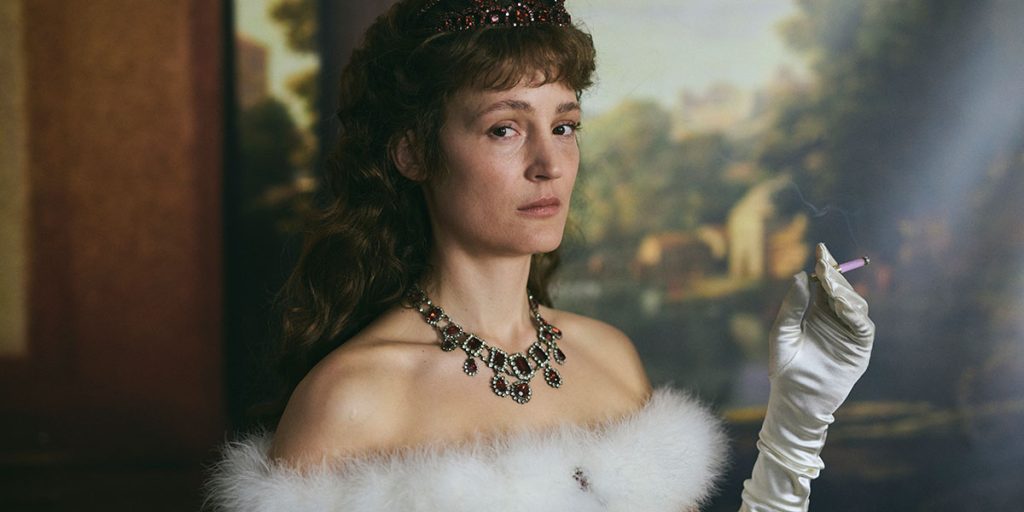
The other biopic I watched was Corsage, which was recently announced as Austria’s official selection for this year’s Best International Feature Oscar race. The film focuses on Empress Elisabeth of Austria (Vicky Krieps), who has just turned 40 and is bored to distraction by her pampered life. A coolly aloof film, Corsage portrays the empress as a modern woman with egotistic desires and inherent apathy that make her less than well-suited to roles as public servant, subservient wife, or dutiful mother (although she does love her children). She searches for something to feed her vanity (she was a famed beauty) and embarks on a sort of mid-life crisis tour. The ending is perhaps the biggest departure from historical truth — the empress was assassinated in her 60s, but the film reimagines a creative “escape” more in keeping to the romantic view of a figure who has been compared to Princess Diana.
Well, I “Ship” Them
Another TIFF trend was odd-couple pairings that lead to mutual healing. Causeway is Jennifer Lawrence’s return to understated indies. In it, she plays an Afghanistan veteran who returns home to New Orleans with a brain injury and PTSD. Dealing with a long and lonely road to recovery in a place she refuses to call home, she finds connection in a friendly but guarded mechanic, played by Brian Tyree Henry, who is dealing with his own emotional trauma. The chemistry between the two is nuanced and complicated. The film patiently and deftly grows their relationship and journey towards recovery in quiet but moving ways.
Empire of Light is Sam Mendes’ first film since the multi-Oscar-winning 1917. Similar to The Fabelmans, Mendes goes back to the rosy days of his youth to wax nostalgic on the magic of movies, film projectors, and old theatres. However, the main character of Empire is a middle-aged woman (Olivia Colman) battling mental health issues while working at an English coastal town’s two-screen cinema in the 1980s. She falls in love with her much younger, Black co-worker (Michael Ward) who opens her eyes to beauty, love, and joy again. Although beautifully shot by Sir Roger Deakins, the film is ill-equipped to handle mental health issues and racism. It would’ve been better if Mendes had stuck to what he knows best and focussed on the beauty of film, to be quite honest.
History is also revisited in The Lost King, which stars Sally Hawkins as Philippa Langley, an amateur historian who led the momentous discovery of Richard III’s body underneath a carpark in 2012. As an outsider, namely, a woman with an invisible disability trying to make her voice heard in an academic sphere populated by old, white men with big egos, Langley finds companionship in her projection of the dead king (Harry Lloyd) who becomes her obsession, sounding board, and confidant. The film draws parallels between the two as defenceless and voiceless targets for ridicule (it turns out that Tudor-era propagandists and modern day Twitter users have a lot in common) who eventually have their day in the sun.
Living, meanwhile, is an adaptation of Akira Kurosawa’s brilliantly life-affirming masterpiece Ikiru. Effortlessly transplanted from Japan to 1950s England by Sir Kazuo Ishiguro’s screenplay and Oliver Hermanus’s direction, a career bureaucrat (Bill Nighy) finds out that he has a terminal illness, and suddenly, his boring, repetitive, impact-less life seems so tragic and meaningless. Lost, he clings to the bubbly verve of a kind, sweet, and understanding young co-worker (Aimee Lou Wood) in order to experience life vicariously through her while searching for meaning in his life. Nighy gives an understated and beautiful performance in this faithfully adapted rehash of a timeless tale.
Canada, Circa 1990
A couple of outstanding stories of immigrant families living in Canada in the 1990s made their way to TIFF, both of which feature single mothers raising boys. Brother is director Clement Virgo’s much lauded return to feature films after an extended period working in television. The film is an adaptation of David Chariandy’s novel of the same name, which is set in Scarborough, Ontario and focuses on a pair of Jamaican-Canadian brothers played by Aaron Pierre and Lamar Johnson. A sensitively and exquisitely shot and edited film about grief, masculinity, and community, Brother has something new to add to conversations about violence, race, and class, plus it has riveting performances and great sound design to boot.
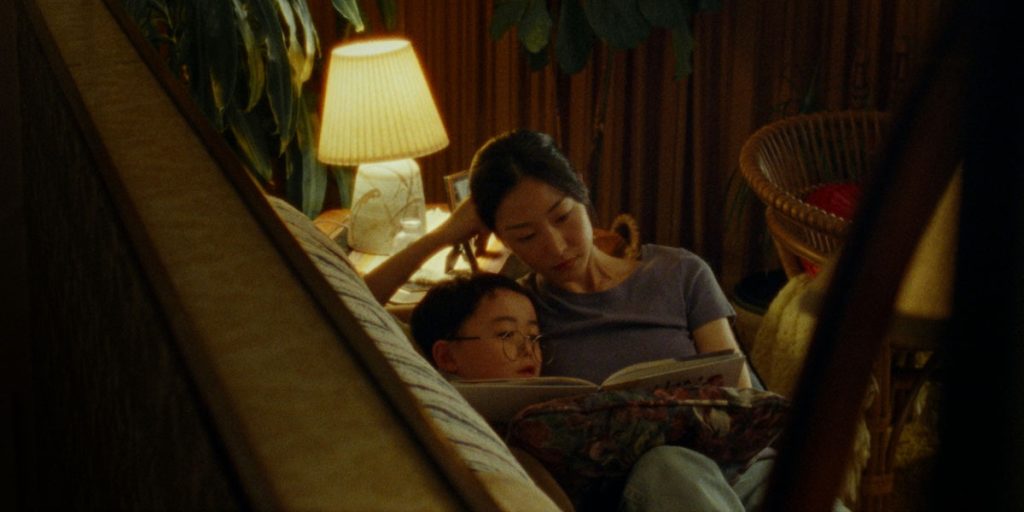
Director and actor Anthony Shim’s Riceboy Sleeps won TIFF’s Platform Prize. A tender two-hander, Riceboy is about a South Korean woman (Choi Seung-yoon) who has emigrated with her son (Ethan Hwang) and must navigate life in Canada with self-possession, resilience, and courage, while teaching her son how to do the same. Choi’s powerful central performance, captured in the film’s many long takes, is one for the ages. As my last screening of the festival, it was a special feeling to be silently crying in the audience while hearing quiet sniffles all around.
The Standouts
Director Sarah Polley’s adaptation of Miriam Toews’ novel Women Talking is a riveting and vital film about women addressing sexual abuse. Set in a religious community that has been ravaged by a series of rapes, the film stars Rooney Mara, Claire Foy, Jessie Buckley, and Canadian veterans like Judith Ivey and Sheila McCarthy in a taut and compelling series of discussions. Polley affords multiple perspectives and generations of women a forum to react to the abuse of men. The heart-rending rage, reflections on power, the hesitations, and the faith expressed is breathtaking. Polley’s empathetic and thoughtful presentation is searing and somehow makes one evening in a barn contain immense scope. The film was the runner-up for the People’s Choice Award. [And the winner of the TFCA ‘best of the fest’ poll.]
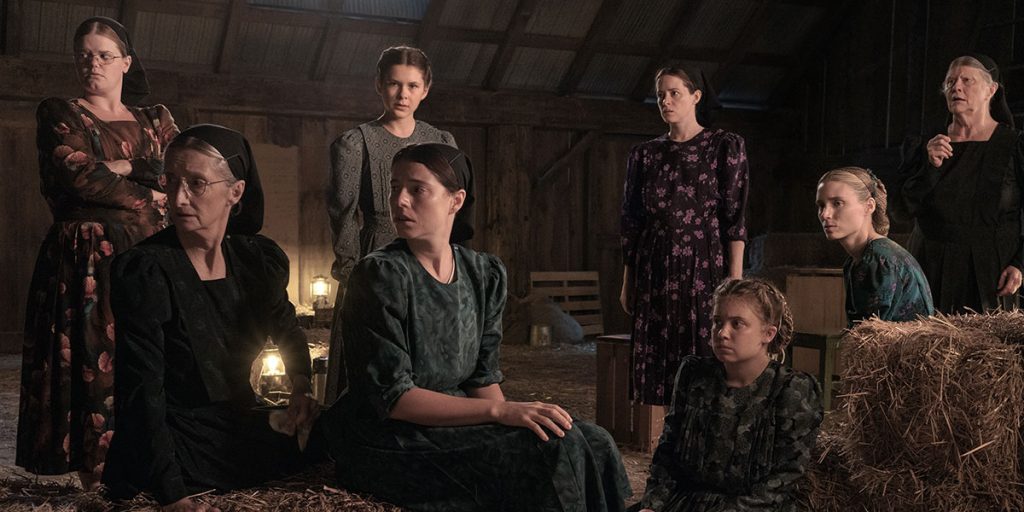
On a lighter note, Glass Onion: A Knives Out Mystery was a hugely popular entry at the festival, and Rian Johnson’s follow up to his 2019 hit absolutely lives up to the hype. Daniel Craig returns as detective Benoit Blanc in another murder mystery as deliciously irreverent, twisty, camp, and fun as can be expected. No spoilers though! (Johnson said we were cool!) The Menu was quite buzzy as well, and I can confirm that it is as funny as it is slick and stylish. Mark Mylod’s send up of the ultra-rich is a pitch-black delight, with terrific performances by Ralph Fiennes, Anya Taylor-Joy, and Nicolaus Hoult. It’s great fun for fans of Chef’s Table and anyone who has heard of the Scandi restaurant Noma. (And did you hear? Toronto now has Michelin-starred restaurants!)
Lastly, Banshees of Inisherin is an extremely funny and dark story by director–writer Martin McDonagh, which reunites him with his In Bruges collaborators, Colin Farrell and Brendan Gleeson. Pádraic (Farrell) is best friends with Colm (Gleeson), but one day the older man decides he no longer likes spending time around the younger. Upset, Pádraic tries to understand why while the grizzled fiddle player remains unchanged in his new opinion. The situation escalates violently, with the rest of the puzzled villagers, including characters played by Kerry Condon and Barry Keoghan, as uneasy witnesses and colourful commentators. McDonagh really leans into the Irish-ness of his story and characters, to great humour, and Banshees is maybe his most accessible comedy yet.
Post Credits Scene
It really was a dream to be back among movie-lovers watching endless screenings for several days in a row. I found myself becoming very familiar with the cycle of bag checks, ticket scans, and pre-show ads. I also observed the weird festival tic that developed out of nowhere — people clapping along to the Bulgari ad. Was it an ironic send up of the longest and most irritating ad of the bunch? Who knows? Truthfully, there’s only so many times someone can endure seeing Anne Hathaway and Zendaya bedecked in massive diamonds, emeralds, rubies, and sapphires, and the rounds of clapping showed how many people in the audience were also cramming in as many movies as they could Whatever idiosyncrasies crop up, I look forward to going back next year and experiencing TIFF all over again!
Rose Ho won the 2020 Cineplex Emerging Critic Award.



